Intro
Discover 7 onion health benefits, including reducing inflammation, boosting antioxidants, and supporting heart health, digestive health, and immune function with its rich nutrient and fiber content.
Onions are one of the most widely consumed vegetables in the world, and for good reason. They add a pungent flavor to a variety of dishes, from savory meats to sweet caramelized sauces. But beyond their culinary uses, onions have been prized for their medicinal properties for thousands of years. In fact, the ancient Egyptians, Greeks, and Romans all used onions to treat a range of ailments, from indigestion to skin conditions. Today, we know that onions are a rich source of nutrients, including fiber, vitamins, and minerals, as well as a range of phytochemicals that have been shown to have numerous health benefits.
Onions are a member of the Allium family, which also includes garlic, leeks, and shallots. They are a cool-season crop, which means they thrive in temperate climates with moderate temperatures and ample moisture. Onions are typically harvested in the summer or fall, when their bulbs are mature and dry. They can be stored for several months, making them a versatile ingredient for cooks around the world. But beyond their culinary uses, onions have been shown to have a range of health benefits, from reducing inflammation to supporting cardiovascular health.
The health benefits of onions are due in large part to their rich nutrient profile. Onions are a good source of dietary fiber, which can help promote digestive health and support healthy blood sugar levels. They are also a rich source of vitamins and minerals, including vitamin C, vitamin K, and potassium. But perhaps most importantly, onions contain a range of phytochemicals, including quercetin, kaempferol, and anthocyanins, which have been shown to have anti-inflammatory and antioxidant effects. These compounds can help protect against chronic diseases, such as heart disease, diabetes, and certain types of cancer.
Onion Nutrition Facts
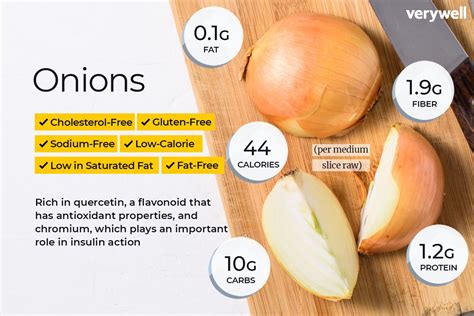
Onion Phytochemicals
Onions contain a range of phytochemicals, including flavonoids, phenolic acids, and saponins. These compounds have been shown to have anti-inflammatory and antioxidant effects, and may help protect against chronic diseases, such as heart disease, diabetes, and certain types of cancer. Quercetin, a flavonoid found in onions, has been shown to have anti-inflammatory effects, and may help reduce the risk of chronic diseases, such as heart disease and cancer. Kaempferol, another flavonoid found in onions, has been shown to have antioxidant effects, and may help protect against cell damage and inflammation.Onion Health Benefits
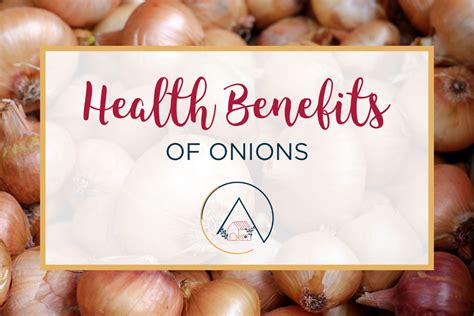
Onion Anti-Inflammatory Effects
Onions have been shown to have anti-inflammatory effects, which may help reduce the risk of chronic diseases, such as heart disease, diabetes, and certain types of cancer. Quercetin, a flavonoid found in onions, has been shown to have anti-inflammatory effects, and may help reduce the risk of chronic diseases. Kaempferol, another flavonoid found in onions, has been shown to have antioxidant effects, and may help protect against cell damage and inflammation. Onions have also been shown to have anti-inflammatory effects in the digestive tract, which may help reduce the risk of digestive disorders, such as irritable bowel syndrome.Onion Cardiovascular Health Benefits
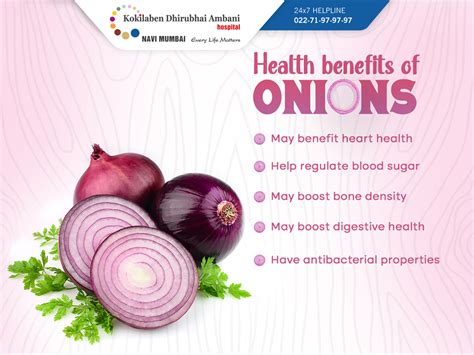
Onion Blood Pressure Reduction
Onions have been shown to have a blood pressure-reducing effect, which may help reduce the risk of cardiovascular disease. Quercetin, a flavonoid found in onions, has been shown to have a blood pressure-reducing effect, and may help reduce the risk of cardiovascular disease. Onions have also been shown to have a blood pressure-reducing effect in individuals with hypertension, which may help reduce the risk of cardiovascular disease.Onion Cancer Prevention

Onion Colorectal Cancer Prevention
Onions have been shown to have a colorectal cancer-preventing effect, which may help reduce the risk of colorectal cancer. Quercetin, a flavonoid found in onions, has been shown to have a colorectal cancer-preventing effect, and may help reduce the risk of colorectal cancer. Onions have also been shown to have a colorectal cancer-preventing effect in individuals with a family history of colorectal cancer, which may help reduce the risk of colorectal cancer.Onion Digestive Health Benefits
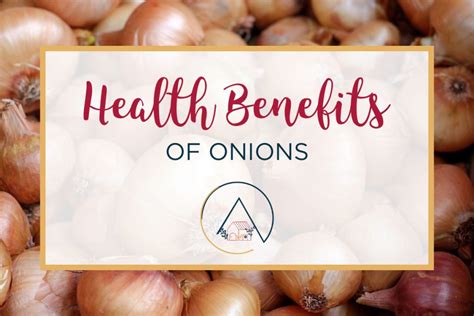
Onion Prebiotic Effects
Onions have been shown to have prebiotic effects, which may help support healthy gut bacteria. They contain a range of prebiotic fibers, including inulin and fructooligosaccharides, which can help promote the growth of beneficial gut bacteria. Onions have also been shown to have prebiotic effects in individuals with digestive disorders, such as irritable bowel syndrome, which may help reduce the risk of digestive disorders.Onion Immune System Benefits
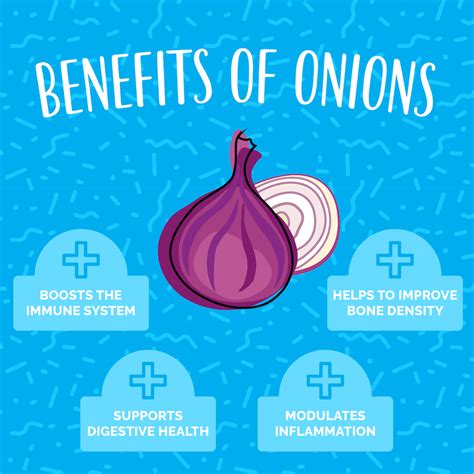
Onion Antimicrobial Effects
Onions have been shown to have antimicrobial effects, which may help reduce the risk of infections. Quercetin, a flavonoid found in onions, has been shown to have antimicrobial effects, and may help reduce the risk of infections. Onions have also been shown to have antimicrobial effects against a range of microorganisms, including bacteria, viruses, and fungi, which may help reduce the risk of infections.Onion Skin and Hair Benefits

Onion Hair Growth Promotion
Onions have been shown to have a hair growth-promoting effect, which may help reduce the risk of hair loss. Quercetin, a flavonoid found in onions, has been shown to have a hair growth-promoting effect, and may help reduce the risk of hair loss. Onions have also been shown to have a hair growth-promoting effect in individuals with alopecia, which may help reduce the risk of hair loss.What are the health benefits of onions?
+Onions have been shown to have a range of health benefits, from reducing inflammation to supporting cardiovascular health. They are a rich source of antioxidants, which can help protect against cell damage and inflammation. Onions have also been shown to have anti-inflammatory effects, which may help reduce the risk of chronic diseases, such as heart disease, diabetes, and certain types of cancer.
How can I incorporate onions into my diet?
+Onions can be incorporated into a variety of dishes, from savory meats to sweet caramelized sauces. They can be sautéed, roasted, or grilled, and can be added to soups, stews, and salads. Onions can also be used as a topping for burgers, sandwiches, and salads.
Are there any potential side effects of consuming onions?
+Onions are generally considered safe to eat, but may cause digestive issues in some individuals. They can also cause eye irritation and tearing in some individuals. Onions may also interact with certain medications, such as blood thinners, and may not be suitable for individuals with certain medical conditions, such as diabetes.
Can onions be used for medicinal purposes?
+Onions have been used for medicinal purposes for thousands of years, and have been shown to have a range of health benefits. They can be used to reduce inflammation, support cardiovascular health, and promote digestive health. Onions can also be used to reduce the risk of chronic diseases, such as heart disease, diabetes, and certain types of cancer.
How can I store onions to preserve their nutritional value?
+Onions can be stored in a cool, dry place to preserve their nutritional value. They should be kept away from direct sunlight and moisture, and should be used within a few months of purchase. Onions can also be frozen or dehydrated to preserve their nutritional value.
In summary, onions are a nutrient-dense food that offers a range of health benefits, from reducing inflammation to supporting cardiovascular health. They are a rich source of antioxidants, which can help protect against cell damage and inflammation, and contain a range of phytochemicals, including quercetin and kaempferol, which have been shown to have anti-inflammatory and antioxidant effects. Onions can be incorporated into a variety of dishes, from savory meats to sweet caramelized sauces, and can be used for medicinal purposes to reduce the risk of chronic diseases. By incorporating onions into your diet and using them for medicinal purposes, you can support your overall health and well-being. We invite you to share your thoughts on the health benefits of onions in the comments below, and to explore other articles on our website for more information on healthy eating and nutrition.
